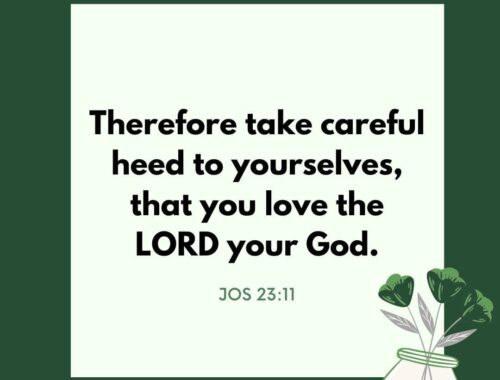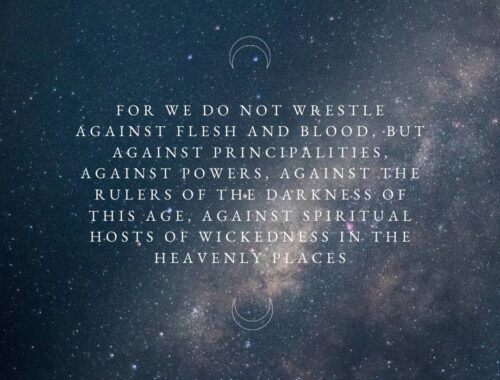Isaiah Chapter 5 – The Song of the Disappointing Vineyard

In Isaiah 5, God starts by singing a song describing His disappointment with the Judah, comparing them to a vineyard which He took great care of, but yielded disappointing results. Isaiah says, “For the vineyard of the LORD of hosts is the house of Israel, and the men of Judah are His pleasant plant. He looked for justice, but behold, oppression; For righteousness, but behold, a cry for help.”
What immediately strikes me when reading this lamentation from our God is His expectation of His people. When one cares for something like a plant, there is no guarantee of returns, but it is reasonable to have expectations based on the effort one has put in. God gave Israel the Promised Land, gave them the ability to remove all its other inhabitants, gave them righteous laws and promised bountiful blessings beyond what they could obtain for themselves if they would only keep those laws – to love God and their neighbours. In return, God expected them to live with justice and righteousness. However, the people disregarded God’s laws and promises, and instead selfishly chased their own desires at the expense of others, even oppressing the poor and weak. This caused God to remark, “what more could have been done to My vineyard that I have not done in it?”
We too are God’s plant, planted in His garden. Have we ever considered what God’s expectations toward us are, given the kinds of conditions He has put in our lives? While God has indeed promised to continually forgive our sins as long as we continue to repent, are we taking advantage of this assurance to maintain the status quo?
Let us remember the parable of the unfruitful fig tree spoken by Jesus in Luke 13:
6 He also spoke this parable: “A certain man had a fig tree planted in his vineyard, and he came seeking fruit on it and found none. 7 Then he said to the keeper of his vineyard, ‘Look, for three years I have come seeking fruit on this fig tree and find none. Cut it down; why does it use up the ground?’ 8 But he answered and said to him, ‘Sir, let it alone this year also, until I dig around it and fertilise it. 9 And if it bears fruit, well. But if not, after that you can cut it down.’ ”
However, if we are struggling with sin and struggling to draw close to God, let us not lose heart. Just as God continually sent His prophets to exhort, remind and warn the people, right up to their destruction, God today likewise is willing to walk this journey together with us, and is always ready to receive us back, as long as we truly decide to turn back to Him. Jesus gave us the parable of the prodigal son as an assurance of this fact – that even when we may feel undeserving, His grace truly abounds more, as long as we return to Him. When we turn back and begin to bear fruit, then our Heavenly Father will say, “truly, the effort I put into caring for this plant was worth it.”
Proclamation of Woes
In the rest of this chapter, God goes on to proclaim woes upon all the unrighteousness that He observed in the land. In particular, the first woe stands out to me as something worth reflecting on.
Woe to those who [e]join house to house;
They add field to field,
Till there is no place
Where they may dwell alone in the midst of the land!
In other words, these people were accumulating wealth, buying over their neighbours’ lands and increasing the size of their own estate, until they were “alone in the midst of the land”. Now what exactly was wrong with this? When Israel first entered the land of Canaan, the land was divided and given to each family. Their land was their inheritance and was likely something that most people were unwilling to sell (See Naboth in 1 Kings 21:3).
People would likely only sell their land when they were going through tough times. At these points of time, their neighbours made use of their hardships as an opportunity for profit, buying up their land to expand their estate.
In today’s context, we are unlikely to directly make profit off our neighbour’s misfortune. But in times of economic recession, if we have not been badly affected, say by losing our jobs, are we more concerned about how we can in fact profit from the situation, for example by making investments when prices are low, instead of looking out for those around us who may have not been so fortunate?
God wants us to love our neighbours, especially by caring for the weak, needy and poor. We see this in the parable of the rich man and Lazarus. In Gal 2:10, when Peter, James and John extended the right hand of fellowship to Paul and Barnabas, committing the mission of preaching to Gentiles to them, it was specially mentioned that “they only desired that we should remember the poor”.
In conclusion, let us ask ourselves 2 questions today.
1. What has God done for me – and thus what are His expectations towards me?
2. Who are in need that are within my reach today? Have I done my part to share the love of God with them?
Let us always strive to please our Master who has carefully and lovingly planted us within His vineyard.
You May Also Like

Isaiah Chapter 17
May 8, 2023
Isaiah Chapter 20
May 15, 2023